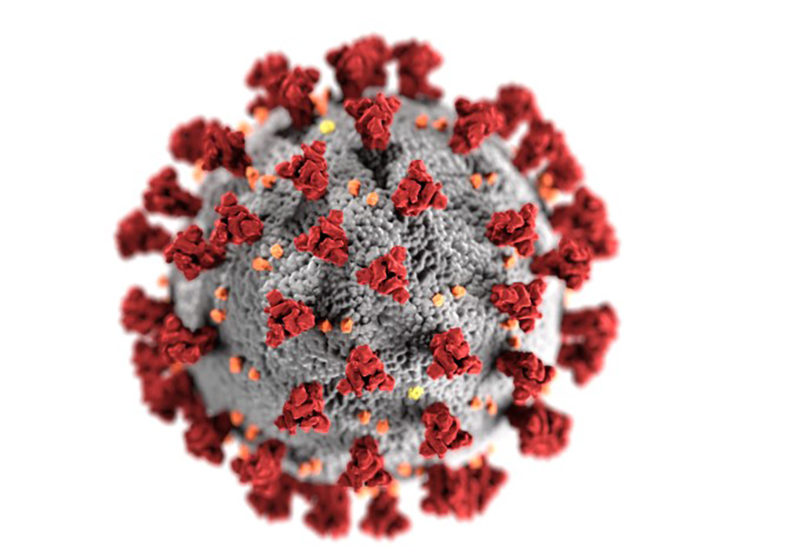This case, published in The Lancet Microbe in early September, is one of the longest Covid-19 infections ever recorded.
Biologist Joseline Velasquez-Reyes of Boston University and colleagues genetically analyzed virus samples from the patient between 3/2021 and 7/2022. They found the virus's mutation rate within the man's body was comparable to that typically seen in an entire community. Notably, some of the virus's spike mutations matched those found in the Omicron variant.
The patient had advanced HIV and a weakened immune system, which turned him into a "living laboratory" for the virus. For over two years (from 2020 to 2022), the virus persisted in his body instead of disappearing, leading to five hospitalizations with persistent respiratory symptoms.
However, the persistent virus wasn't highly contagious. The lack of any recorded transmission to others suggests it may have lost its transmissibility while adapting to a single host, Velasquez-Reyes noted.
 |
Illustration of the Covid-19 virus. Photo: CDC |
Illustration of the Covid-19 virus. Photo: CDC
According to the research team, the case demonstrates that dangerous Covid-19 variants can emerge from prolonged infections. "Long infections allow the virus to explore ways to infect cells more efficiently. This work reinforces evidence that more transmissible variants have emerged from such infections," said epidemiologist William Hanage of Harvard University.
Experts warn that persistent infections can have significant consequences for public health. Treating these cases effectively is a top priority. Additionally, people should stay up-to-date with vaccinations, continue wearing masks in crowded and enclosed spaces.
Binh Minh (Source: Science Alert)












